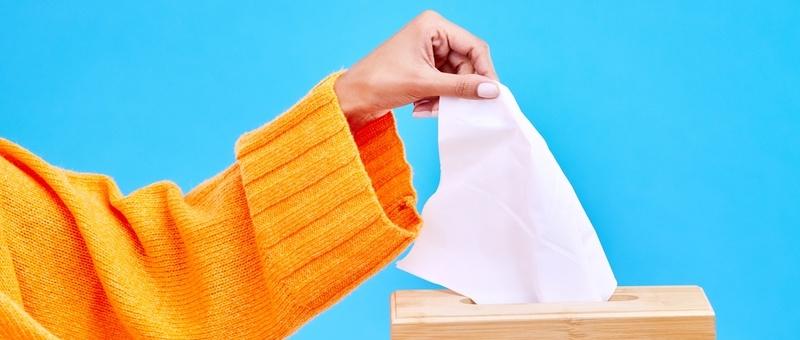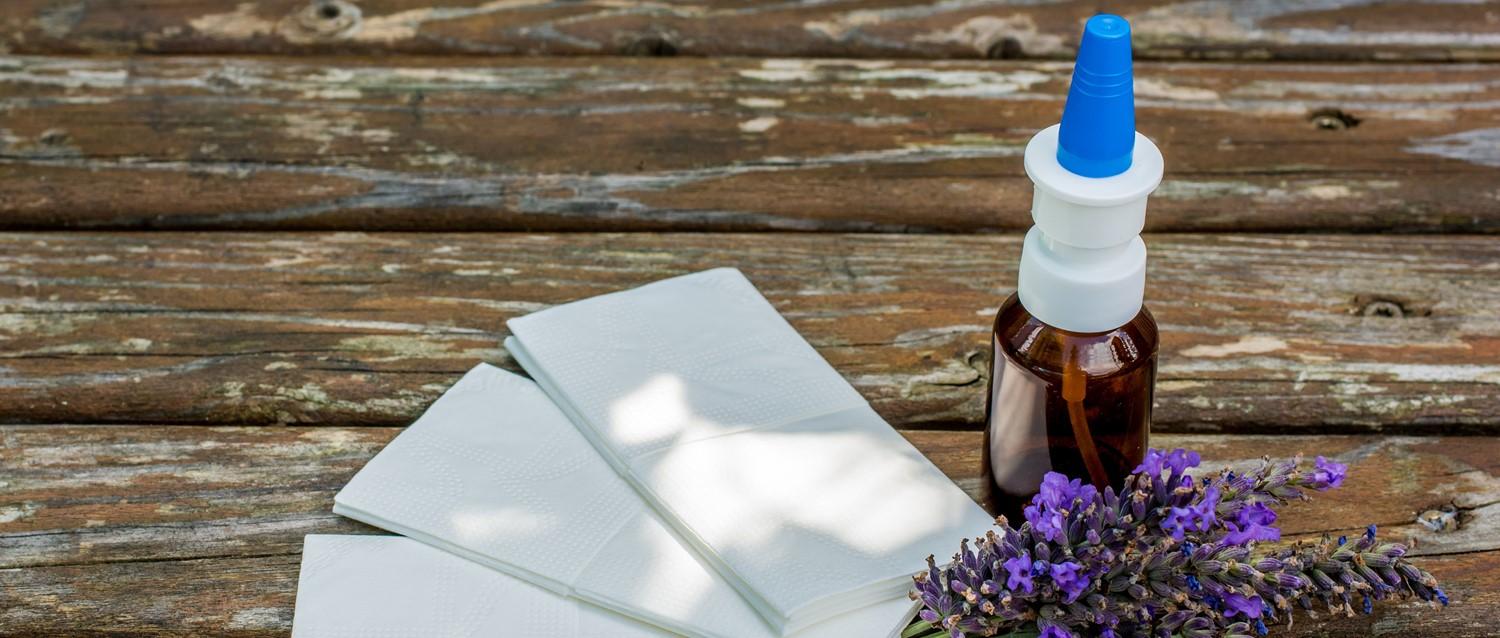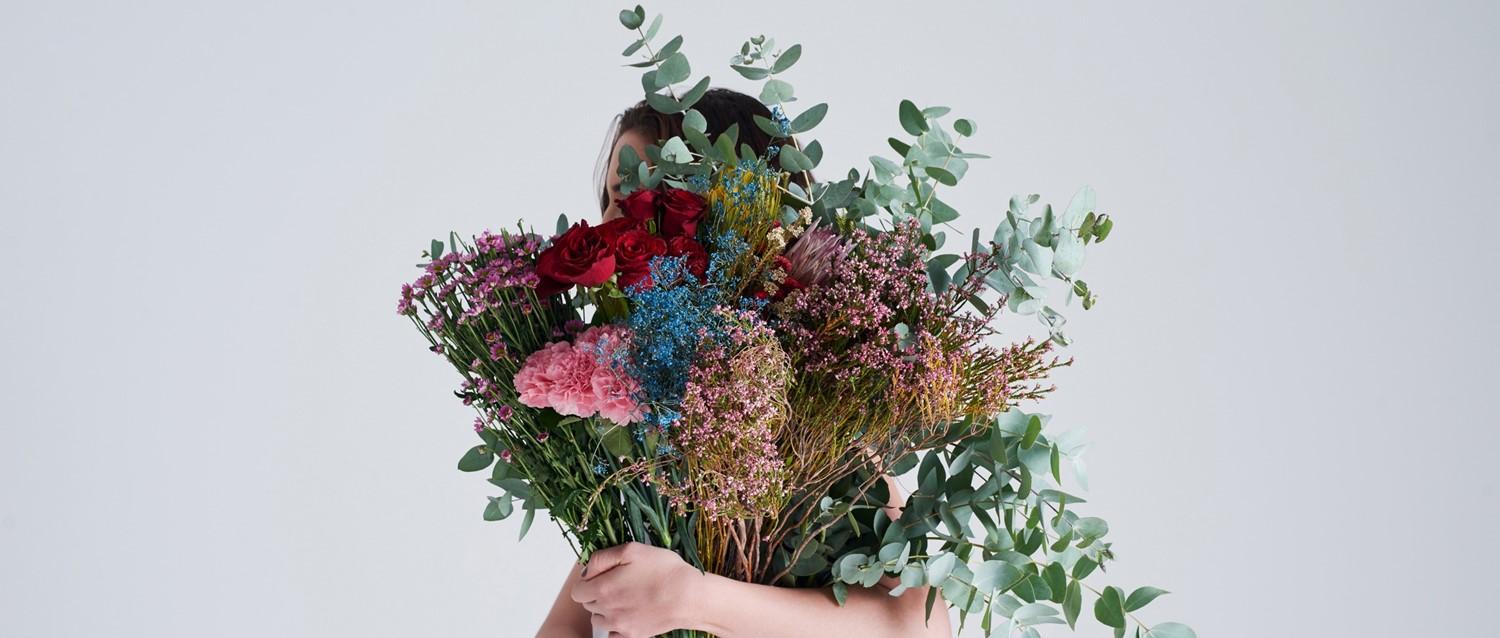
How to manage hay fever at home
Peer reviewed by Dr Colin Tidy, MRCGPLast updated by Victoria RawLast updated 13 May 2025
Meets Patient’s editorial guidelines
- DownloadDownload
- Share
- Language
- Discussion
The weather's getting warmer, and spending more time outside can be a fun but challenging time if you have hay fever. We share the best at home tips and natural hay fever remedies, for when your usual treatments aren't quite enough.
In this article:
Depending on which type of pollen you're allergic to, you may have hay fever symptoms at any point between the beginning of spring, right through to the end of summer. There are various hay fever treatments to help you manage these, but what if you're having a particularly bad hay fever day and you need a little extra help?
Dr Deborah Lee of Dr Fox Online Pharmacy and Dr Pavol Surda, an allergy and sinuses specialist and surgeon at London Bridge Hospital, share their top tips on managing hay fever symptoms - at home, with natural hay fever remedies, and when to turn to medicines.
Continue reading below
What is hay fever?
Hay fever affects up to 1 in 3 people around the world, and is caused by a seasonal allergy to pollen.
Lee says: "In the spring and summer, when certain trees and plants are producing pollen, this can cause unpleasant hay fever symptoms - most often, itchy eyes, runny eyes, and an itchy, runny nose."
Surda explains that when pollen particles enter your nose it triggers an immune response, which leads to the symptoms you're so familiar with.
"During the introduction to a certain allergen, your immune system will decide whether to tolerate it or become sensitive," he says. "Becoming sensitive means that your immune system mistakes allergens such as pollen for something the body needs to fight against - in turn, your body releases chemicals called histamines into the blood which trigger hay fever symptoms."
There are more than 30 different types of pollen known to cause hay fever:
Grass pollen - the most common with people who have symptoms mostly from May to July.
Rapeseed - causes symptoms between March and July.
Alder, hazel and yew pollens - may be an issue between January and April.
Populus, ash, birch and plane pollens - occur slightly later, between March and May.
Natural hay fever remedies
There are things you can do besides take medicine to prevent and soothe your hay fever symptoms.
Watch the pollen count
One of the most effective ways to manage your hay fever symptoms is to be aware of the pollen count.
Lee says: "If you have hay fever and/or asthma, it's important to take extra care when the pollen count is high or very high.
"The pollen count is affected by the weather. It is highest on hot, windy days and lowest when it is cooler and raining."
You can monitor when it's expected to be high, moderate, or low on apps.
Stay indoors when it's high
If you know the pollen count is going to be high, try to stay indoors as much as possible.
Lee explains that though this may sound simple, you can shield irritated, itchy eyes and sensitive noses from airborne pollen particles.
Keep your home free from pollen
You can reduce the impact of pollen in your home with a few small changes to your daily routine.
According to Lee, during hay fever season this means:
Changing your clothes when you come in from outside.
Showering after you have been outside.
Vacuuming regularly and mopping the floors instead of sweeping to avoid dust.
Drying your washing inside the house.
Avoiding bringing fresh flowers into the house.
Keeping the windows closed as often as possible.
Surda says: "Where possible, you should avoid spending too much time outside, or leaving the doors and windows open too long in the house. Remember, pollen counts, are highest in the morning and at dusk. Pollen is released first thing, goes up in the air, then comes back down."
Dress for the occasion
Just as you dress up in warm layers during winter, during hay fever season you should leave the house with your eyes, nose and mouth covered and protected.
Lee advises wearing wraparound sunglasses and using face masks that can filter pollen when out and about.
Continue reading below
Can antihistamines help hay fever symptoms?
Natural hay fever remedies and at-home tips are an important way to keep your symptoms in check, but for many people, this won't be enough.
The most effective way to manage your hay fever symptoms with medicine is to take antihistamines. These reduce your body's natural immune response - or histamines - that are released when you come into contact with a trigger such as pollen.
Lee says: "Antihistamines are the most common hay fever treatments. They work by preventing the release of histamine.
"They can be taken as tablets, liquids, syrups, eye drops, nasal sprays, creams, and lotions. But they need to be used on time and regularly to keep their effects ongoing. If you miss out on a dose, you will be too late to prevent the release of histamine, and symptoms will most likely start."
Surda advises that a combination of antihistamine tablets, nasal spray and eye drops are the most effective hay fever treatment.
Fox and Surda explain the most common treatments include:
Hay fever tablets - non-drowsy, such as those containing cetirizine or fexofenadine. Drowsy options are those containing chlorphenamine or promethazine.
Nasal sprays - nasal corticosteroid sprays are best for treating nose symptoms. They become highly effective after 3-4 days of use.
Eye drops for itchy and watery eyes - sodium cromoglycate eye drops prevent your body from releasing histamine. These can be applied, two drops in each eye, four times a day.
Surda adds: "Ask your pharmacist for non-drowsy antihistamines containing loratadine or cetirizine."
Hay fever treatment is usually offered depending on the type of symptoms and the severity.
Lee says that a person who only has eye symptoms might just be given eye drops. Someone who has runny, itchy eyes and nose - plus other generalised symptoms - would usually be offered antihistamine tablets, as well as eye drops and a nasal spray.
Your pharmacist can advise on the best course of treatment for your personal needs.
If you are still getting symptoms, despite trying to manage them at home, book in with your healthcare provider to discuss other options. If you also have asthma, it's important you speak to your doctor about how hay fever symptoms might trigger asthma, and how you can prevent a serious flare-up.
Patient picks for Hay fever

Allergies, blood and immune system
Which type of hay fever nasal spray is right for you?
For hay fever sufferers, it's almost impossible to totally avoid pollen throughout spring and summer. Thankfully, there are treatments that can provide hay fever relief, and these come in the form of oral tablets, eye drops, non-drug methods, and nasal sprays. With so many options to consider, how do you know if nasal sprays are right for you, and which type of hay fever nasal spray is best?
by Amberley Davis

Allergies, blood and immune system
Are all hay fever treatments the same?
As the warmer weather sets in and pollen counts spike, those who suffer with hay fever are plagued by the all-too-familiar runny nose and itchy eyes. Hay fever symptoms can make you feel groggy, wheezy, and itchy, can give you headaches and, in general, are just plain unpleasant.
by Andrea Downey
Continue reading below
Article history
The information on this page is peer reviewed by qualified clinicians.
Next review due: 14 May 2028
13 May 2025 | Latest version
11 Aug 2022 | Originally published
Authored by:
Andrea Downey

Ask, share, connect.
Browse discussions, ask questions, and share experiences across hundreds of health topics.

Feeling unwell?
Assess your symptoms online for free
Sign up to the Patient newsletter
Your weekly dose of clear, trustworthy health advice - written to help you feel informed, confident and in control.
By subscribing you accept our Privacy Policy. You can unsubscribe at any time. We never sell your data.